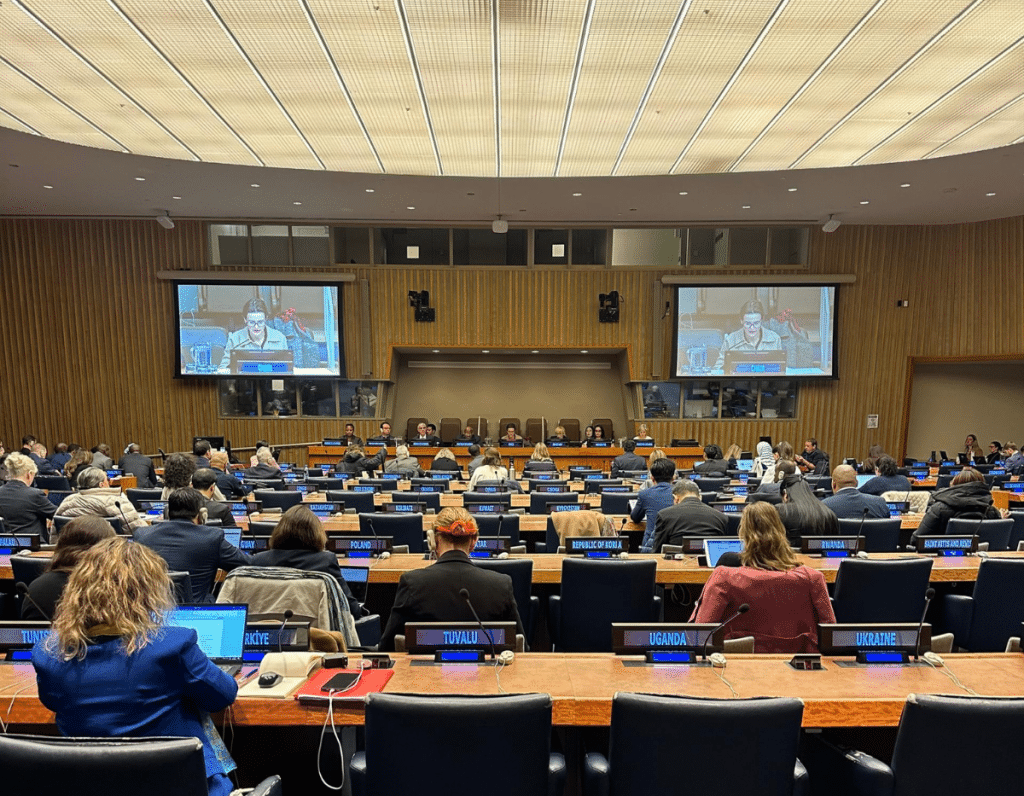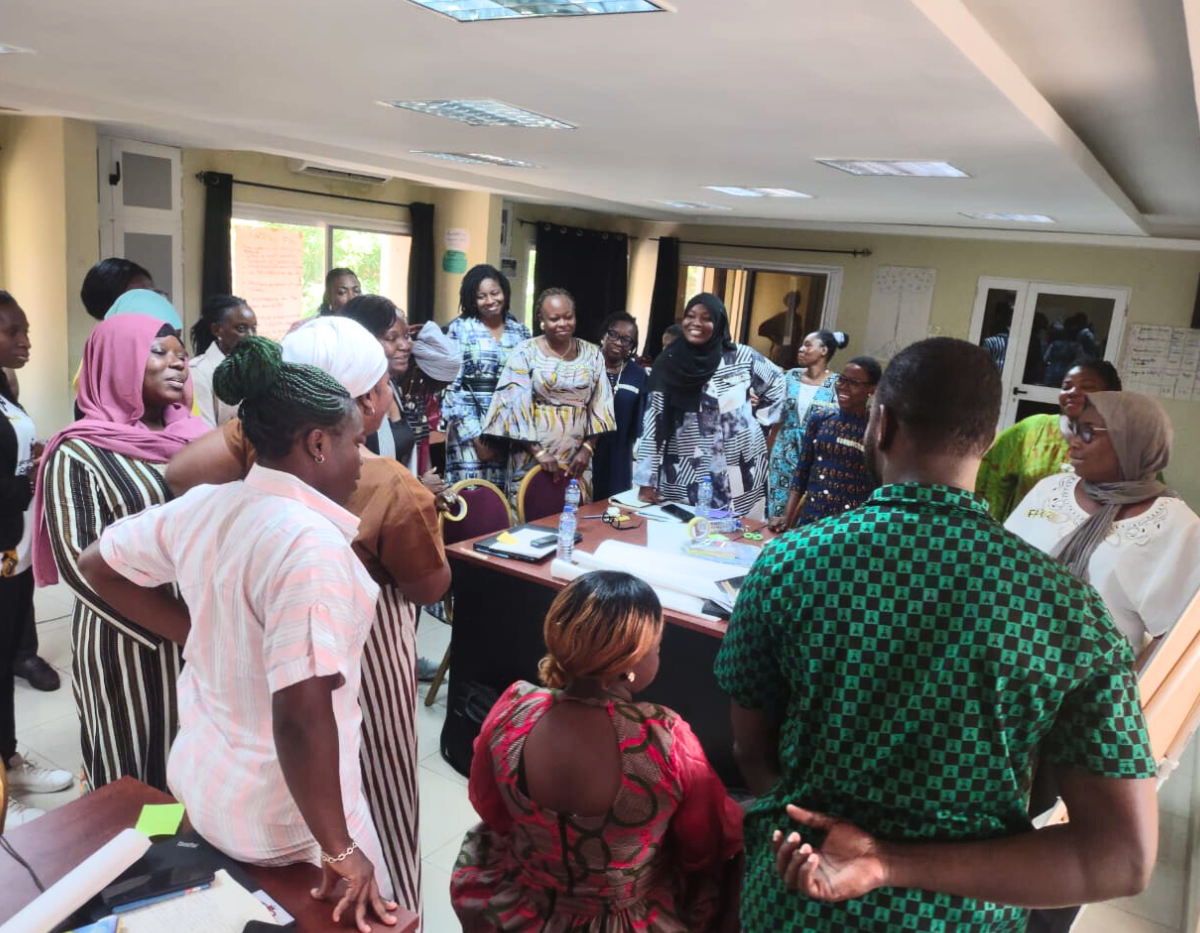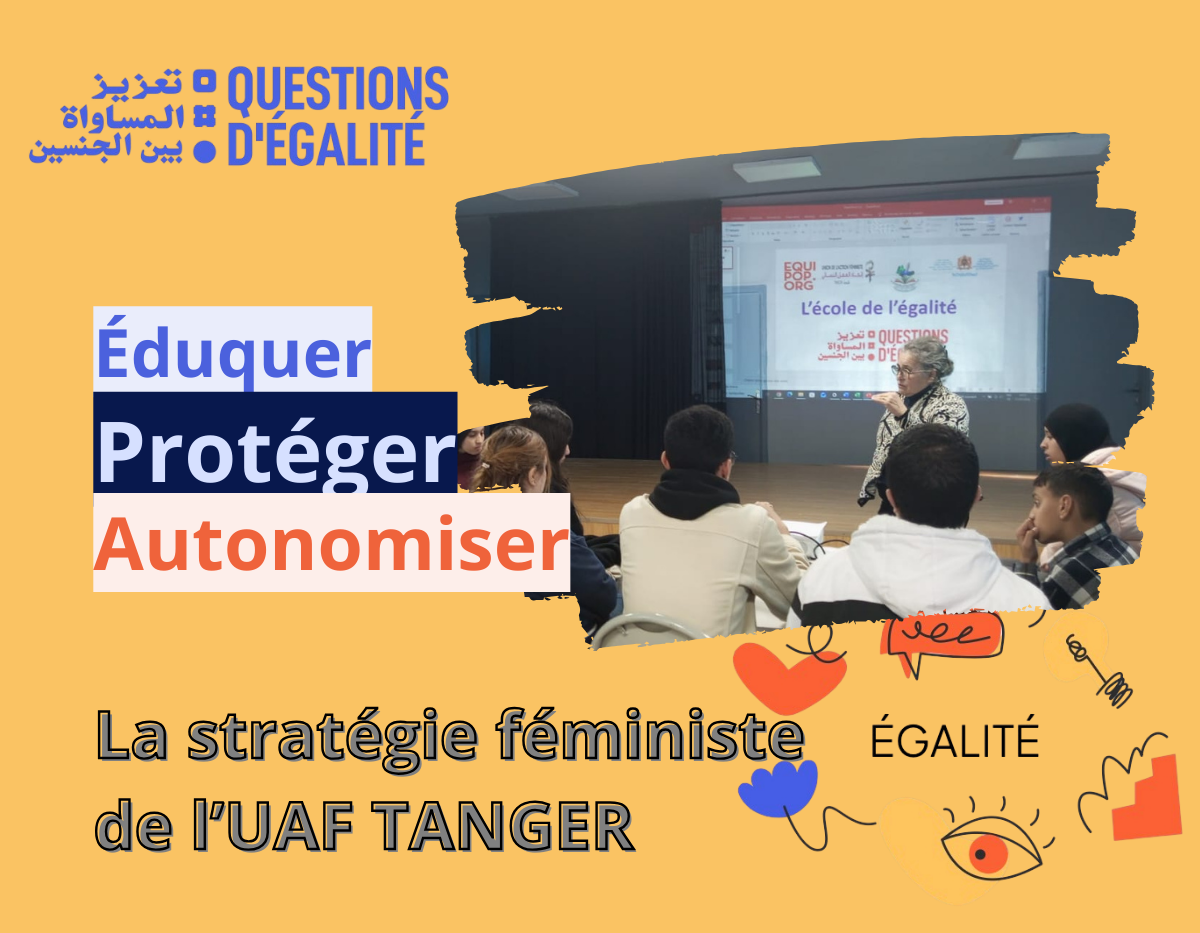WHAT OUR PARTICIPATION AT THE 58TH SESSION OF THE COMMISSION ON POPULATION AND DEVELOPMENT TAUGHT US From April 7 to 11, 2025, Equipop took part in the 58th session of the United Nations Commission on Population and Development (CPD). This year’s theme: « Ensuring healthy lives and promoting well-being for all at all ages. » An intense, highly institutional space, largely dominated by States… yet one that remains absolutely essential for defending sexual and reproductive health and rights (SRHR) as fundamental pillars and drivers of equality.
The UN Commission on Population and Development (CPD) is tasked with monitoring the implementation of the Programme of Action adopted at the 1994 International Conference on Population and Development (ICPD) in Cairo, Egypt. That landmark moment placed human dignity and rights — notably in the realm of sexual and reproductive health — at the core of sustainable development policies. Each year, the CPD assesses progress and shapes political directions through negotiated resolutions. Just a month ago, we were at the 69th session of the Commission on the Status of Women (CSW69) alongside the Alliance Féministe Francophone. This time, it was CPD: a quieter, more technical space — but no less strategic. Fewer side events, fewer activists, more technocrats and diplomats. Discussions mostly behind closed doors, every word subject to fierce negotiation. If the energy feels less palpable than at CSW, the stakes are just as high: advancing consensus on SRHR in a global context of hardening ideologies. Against this backdrop, one major question: how can civil society and feminist voices continue to make a difference?
WHEN RIGHTS NO LONGER UNITE: THE BATTLE FOR SRHR AT CPD58
Right from the opening, Dr. Natalia Kanem, Executive Director of UNFPA, set the tone: a firm call to reaffirm the ICPD legacy and put SRHR back at the heart of the global agenda. A necessary reminder in today’s fragile multilateral environment, where sexual and reproductive rights are increasingly under siege — as evidenced by their total erasure from the final declaration of CSW69. CPD58 thus stood out as one of the rare institutional arenas still capable of carrying these crucial issues forward. But negotiations and plenary interventions quickly exposed the deep-seated tensions within the UN system, revealing a polarized multilateralism and a weakening international consensus. On one side, strong and sometimes unexpected positions: On day one, Sierra Leone — speaking on behalf of 78 countries — delivered an ambitious and comprehensive statement on SRHR. The text explicitly linked health to systemic inequalities (social, economic, racial, gender-based), affirming that dignity, choice, and social justice are inseparable from dismantling existing power structures. It was a rare and powerful message that echoed far beyond the conference room. Norway, too, reaffirmed its historic commitment to gender equality, highlighting the alarming setbacks seen in many parts of the world. But these stances were met with an organized pushback. The United States, continuing its CSW69 posture, took an openly disruptive line: rejecting Agenda 2030, disengaging from the Sustainable Development Goals (SDGs), retreating into a traditionalist view of the family, and promoting the Geneva Consensus Declaration — a tool increasingly used to challenge reproductive rights, including access to abortion. Argentina, Iran, and a handful of others joined in, revealing a coordinated effort to redefine multilateral norms along reactionary lines, disregarding the lived realities of millions around the globe. This was not about a few isolated interventions: It was part of a larger offensive aiming to delegitimize reproductive rights and reinstall patriarchal norms at the heart of international institutions. In this tense environment, resistance organized itself. South Africa, backed by 42 countries across all regions, voiced deep concern over repeated attempts to roll back rights long considered as consensus issues at the CPD. They called for safeguarding the historic gains of the ICPD Programme of Action, defending multilateralism, and reaffirming commitment to Agenda 2030 — including the SDGs in their entirety. Uruguay and Paraguay also spoke up, denouncing the absence of consensus while reaffirming their attachment to the founding principles of ICPD. This moment highlights a structural paradox: a majority of States are mobilized to defend rights, but their efforts repeatedly crash against the obstruction tactics of a diplomatically powerful minority. Today, the fight for SRHR is no longer just about substance — it’s about the very mechanisms of international governance. For the past decade, it has become increasingly rare for CPD sessions to conclude with an adopted resolution.This growing political deadlock on SRHR is weakening the normative power of the CPD itself. And in 2025, once again, deep divides between progressive and anti-rights States prevented any conclusive outcome. The 58th session ended without a negotiated text — yet again.
A STRATEGIC SPACE, YET UNDER-INVESTED BY FEMINISTS
In this arena, feminist voices — especially those from West Africa and the Francophone world — remain far too rare. The consequences are tangible: perspectives grounded in our lived realities are overlooked, and our priorities left undefended. This forces a strategic reckoning: how can we continue to influence a space where formal outcomes are increasingly blocked, but where power struggles with massive implications for our rights are still playing out? What CPD58 clearly showed is that without collective action and coordination, influence remains limited. Some coalitions, like the International Sexual and Reproductive Rights Coalition (ISRRC), played a critical role: decoding UN language, proposing alternative wording, channeling clear messages to delegations. Without embedding ourselves in these dynamics, mere presence on the ground isn’t enough. Civil society voices were occasionally heard during plenary sessions — but their complete absence from the Opening Plenary was telling. In such a heavily institutionalized space, activist and feminist voices are more necessary than ever to counterbalance purely state-centered narratives and to make other stories heard: stories grounded in lived realities, field-based expertise, and politically rooted civil society action. Unlike the CSW, CPD still has few side events — even though such events often serve to rebalance debates. And when side events do take place, they are sometimes captured by anti-rights movements. One side event even went so far as to label the Sierra Leone statement’s key arguments as « fake news » — a stark reminder of how organized and strategic these movements have become. Still, some spaces we participated in succeeded in amplifying powerful voices: organizations foregrounded maternal mortality, menstrual health and dignity, and community-led, self-managed care — consistently centering the knowledge, experiences, and activism of women rooted in their own contexts.
ONE THING IS CLEAR: WE CAN NO LONGER STAY ON THE SIDELINES
CPD may not be the most visible or accessible arena — but it remains a strategic one. It’s where international commitments on SRHR are being reshaped, often under pressure, sometimes for the better. Showing up matters. Showing up prepared, united, with a shared strategy, matters even more. Equipop will continue making sure the voices of its partners are heard at the CPD, promoting a feminist reading of SRHR policies, and fighting to make narratives of choice, justice, and dignity heard — right where the norms that impact our lives are being decided.





